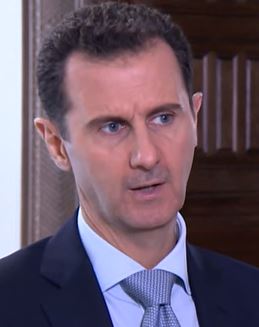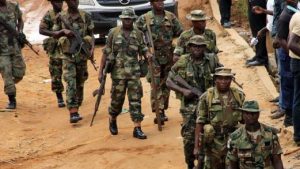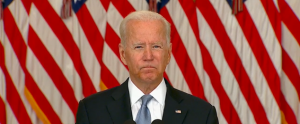
The Guardian / UK: The Syrian president, Bashar al-Assad, has described a chemical attack that killed dozens of people and prompted Donald Trump to launch missile strikes on his country as “a fabrication”.
Assad’s claim, made in an interview with Agence France-Presse news agency, effectively dismisses evidence from international chemical weapons experts who found traces of nerve agent in samples from the site of the attack, the town of Khan Sheikhun.
It also puts him at odds with his main backer, Russia. Moscow has fiercely defended Assad, but not denied that chemical weapons killed many at the site, arguing instead that Syrian government planes hit a rebel weapons stockpile, releasing the gas.
Assad described any suggestion that chemical weapons had been used as “100% fabrication” intended to justify US attacks on a Syrian airbase.
“Our impression is that the west, mainly the United States, is hand-in-glove with the terrorists. They fabricated the whole story in order to have a pretext for the attack,” Assad said in his first interview since the attack.
Images from Khan Sheikhun of victims convulsing and foaming at the mouth caused widespread international outrage. Trump cited the suffering of dozens of children who were among the dead and injured as one of the main reasons he dropped his long-standing opposition military action against Assad.
But the Syrian leader questioned whether the videos were real, insisting it was “not clear whether it happened or not, because how can you verify a video? You have a lot of fake videos now”.
He said: “We don’t know whether those dead children were killed in Khan Sheikhun. Were they dead at all? Who committed the attack if there was an attack?”
Four years ago, outrage over an even larger nerve agent attack forced Assad to agree to give up all his stocks of chemical weapons in the face of threats of US military intervention.
He insisted he had stuck by that deal and would never use chemical weapons, even though UN investigators say his troops have attacked with chlorine gas.
“There was no order to make any attack. We don’t have any chemical weapons, we gave up our arsenal a few years ago,” he said. “Even if we have them, we wouldn’t use them and we have never used our chemical arsenal in our history.”
The British prime minister, Theresa May, said on Thursday that the UK believed Assad was responsible for the attack.
“We believe it is highly likely that the attack was carried out by the Assad regime,” she said. “Apart from anything else, we believe it’s only the regime that has the capability to make such an attack.”
The Organisation for the Prohibition of Chemical Weapons, the global monitor of the banned arms, has begun an investigation into the attack.
But Russia blocked a UN security council resolution demanding Syria cooperate with the inquiry on Wednesday and Assad said he would not work with investigators he considered to be politicised.
Syria could “only allow any investigation when it’s impartial, when we make sure that unbiased countries will participate in this delegation in order to make sure that they won’t use it for politicised purposes”, he told AFP.
Assad said Syria’s military capacity had not been damaged by US strikes, which hit a base Washington believes was used to launch the sarin attack, but added that the country was preparing for future bombing raids.
More US attacks “could happen anytime, anywhere, not only in Syria”, he said.
The interview came soon after the US admitted killing 18 fighters from the Syrian Democratic Forces in a friendly-fire incident this week. The Kurdish-led SDF coalition is part of the push towards the Islamic State stronghold of Raqqa, with backing from western bomber jets and drones.
SDF soldiers misidentified one of their own fighting positions as an Isis hold-out when they called in a strike, the coalition said.
The deaths are a reminder of the complexity of the fight against Isis, which is still the focus of western military efforts in the region. Western forces must coordinate with a complex patchwork of fighting groups on the ground, who have varied levels of training.
There has been a sharp increase in reported civilian deaths from western strikes in recent weeks, with human rights groups warning more needs to be done to protect non-combatants caught up in the brutal battles for Raqqa and Mosul.




